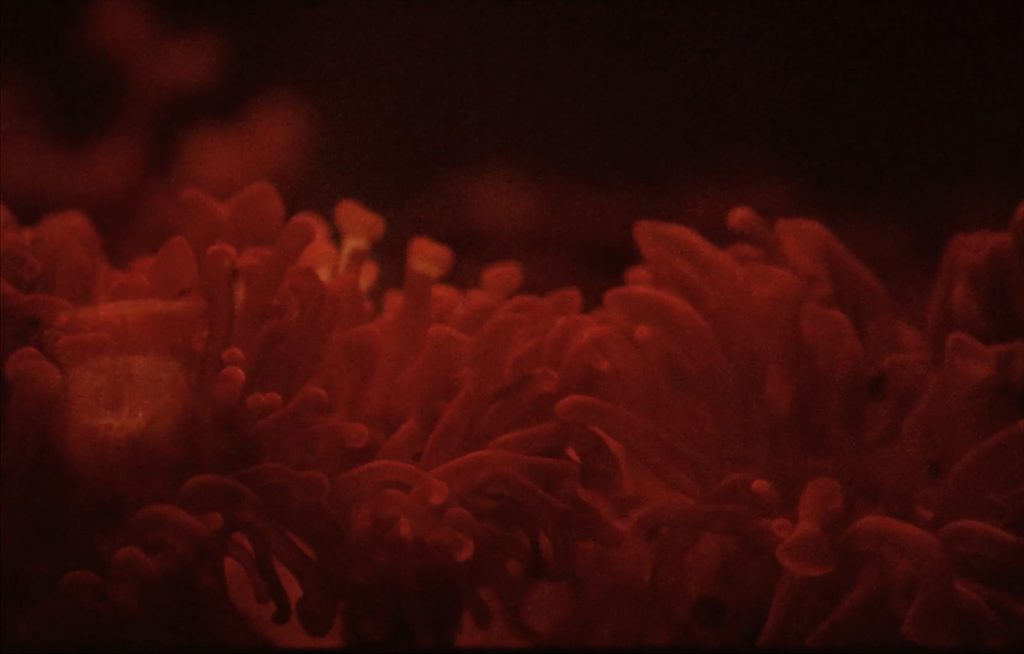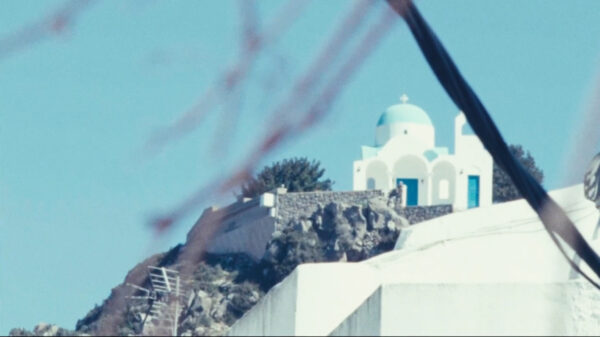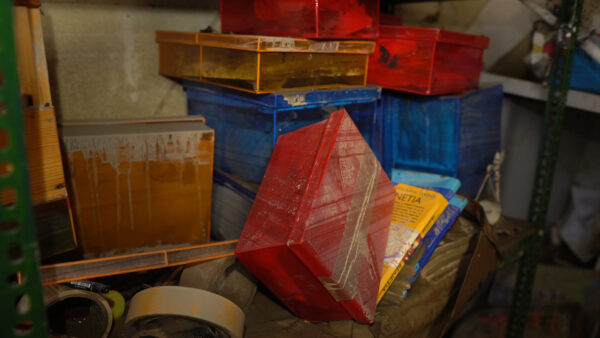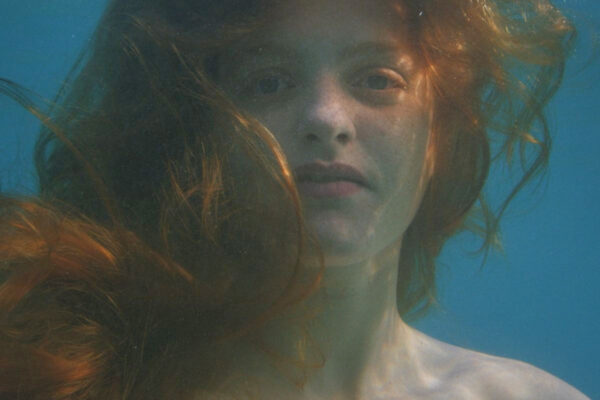Of Consolation And Constellations
The End of Suffering (A Proposal)
Jacqueline Lentzou seems to offer some solutions to our existential angst, as the title of her latest short film humorously suggests.

It is tempting to reduce the aesthetic of Greek director Jacqueline Lentzou, who has been a household name in the short film circuit for a few years now, as meandering or wavering. After all, her work tends to flow about, chasing textures or the impulses and outbursts of her protagonists more than plot or narrative logic. Her interests clearly lie in the way sunlight hits a dirty window, its refracted rays slowly revealing a beautiful, crying visage–not in carefully planned story beats.
We sense a certain aimlessness, often associated with the generation she so empathically portrays. Adrift in the 21st-century void, her characters wander and search for their place in the world. Perhaps Lentzou is similarly looking for answers, which might be why she cannot help but linger on the faces of those who do not seem to find words or reasoning for their sadness. As if she’s probing for a resolution. Likewise, when she manages to break free from earthly affairs by pointing her camera towards the sky and capturing the moon in all its mysteries, do we read it as yearning? And when we witness Lentzou’s foraging for emotion by way of formal playfulness, do we interpret it as a search for meaning?
Whatever it might be, Lentzou does seem to offer some solutions to our existential angst, as the title of her latest short film humorously suggests: The End of Suffering (A Proposal). For something to end, however, we need to immerse ourselves in it first, which is why she opens with her heroine weeping on a train. Sofia Kokkali, who might too easily be read as an on-screen alter ego of the director after starring in both predecessor Hector Malot: The Last Day Of The Year (2018) and fresh new debut feature Moon, 66 Questions (2021), won’t be on screen too long for this one, yet the few seconds she’s actually in focus, she manages to convey a great deal of sorrow. Her sobbing, paired with the climactic synth-pop from her headphones, is truly painful to behold. As she stares at the passing landscape, she gets overtaken by panic. Moments later we watch her disappear in the crowd of a train station. She will remain the protagonist of the film, but her physical return will have to wait until the final, life-affirming scene.
As a flare circles its way down against the night sky, Sofia’s spirits calm. It’s at this moment the cosmos decides to call in, taking the film in an unexpected direction. “Your desperation level vibrated strongly, so we decided to give you some insight,” the yellow subtitles inform us/her–the disembodied voice of the Universe being an indecipherable metallic noise, courtesy of sound designer Leandros Ntounis. It’s a bizarre premise, except Lentzou makes it feel more like an unforced “anything can happen” sleight of hand. Conversations proceed, and Sofia seems open to discussing her state of mind. Though not before she awkwardly gets berated for trying to make sense of everything–as well as for three dehydrated bougainvilleas and two dead eucalyptus on her balcony. Our leading lady finds out she’s not from planet Earth, but from outer space: “You’re coming from Mars”. The revelation arrives as solace, an explanation for her burdening ‘otherness’ and existential fears.
Visually, Lentzou aims for handicraft infinity. Together with her team, she created a computer-generated cosmos that’s textured like a 90’s Space World diorama, strongly contrasting, for example, Terrence Malick’s wondrous creation sequence in The Tree of Life (2011). While budgeting reasons are obviously an important factor for this dissimilarity, the handmade look and feel of the Greek director seem to serve another purpose as well. This is precisely why I bring up Malick and his awe-inspiring, divine universe: the contrast between the two directors and their approach to visualizing and presenting the vastness of outer space raises an interesting argument. Is Lentzou at all concerned with the Big Questions? It appears here–contrary to the queries I posed earlier–she might not be. If we find any traces of metaphysical pondering, they come from an authentic place of tenderness: an empathetic concern for Sofia’s despair. There’s an unspoken kindness to it all. Moreover, her methods seem to suggest a specific disinterest in impressing or overwhelming her audience and protagonist. You might even call her trip to the cosmos quirky, though luckily never the kind that crosses into irksome Sundance territory.
In the second half of Sofia’s convo with the universe/Mars, we switch to observations of life on the Red Planet, shot on beautiful, red-filtered 16mm by Lentzou’s regular cinematographer Konstantinos Koukoulios. Mysterious imagery of reptiles is succeeded by humans performing physical exercise and sports, while the extraterrestrial entity informs us that Mars is the planet of love–contrasting, of course, with Greek mythology, which assigns the domain of war to the celestial body. The relation between image and words intentionally gets kept ambiguous, wittily subverting the foundation of classic ethnography of allocating meaning and purpose to the unknown. It works vertiginous, at once confirming Lentzou’s modus operandi. While the handheld camera zooms on high-rise apartments–before going full Stan Brakhage when immersing itself in the abstractions of light, grain, and sensual color–we sense Sofia might have found some relief. By the end, the Universe treats her to a pop song and a charming conclusion: “All of you are nothing but fallen flowers.”
Answers come in dreams, or they don’t. There is frustration here, a rejection of “knowing”. That isn’t to say there isn’t any affinity for the age-old quest for the meaning of life, but Jacqueline Lentzou is clearly more attracted by the poetry around us and, thus, the way consolation can be found in this beauty. With the infectious joy of game playing, she explores both the complex inner worlds of her characters and the stars. Whether she is fabricating a personal mythology or experimenting with form, she is navigating cinema on her own terms. Perhaps it’s too early to tell, but a case could even be made that The End of Suffering (A Proposal) is a key text in her young but growing oeuvre. It feels like a turning point, at the very least. What was once a search for truth now transformed into one for love. First and foremost, it’s indicative of someone who has come to accept and surrender to the mysteries of the inexplicable.





There are no comments yet, be the first!